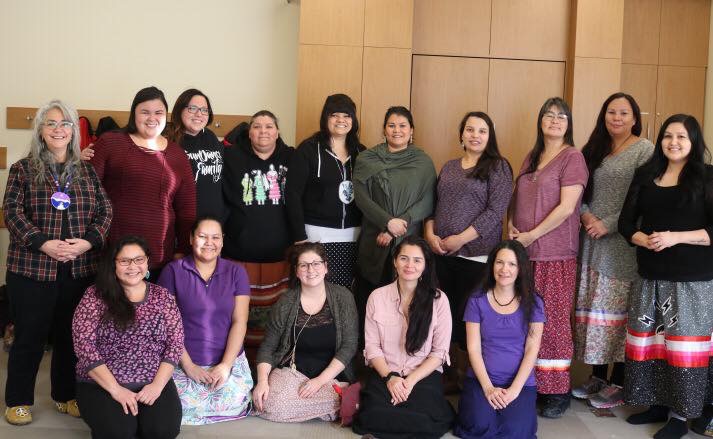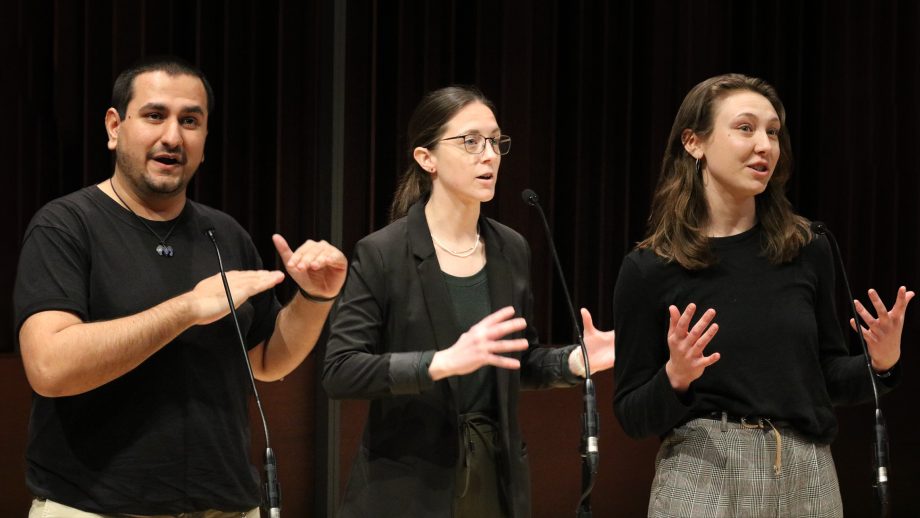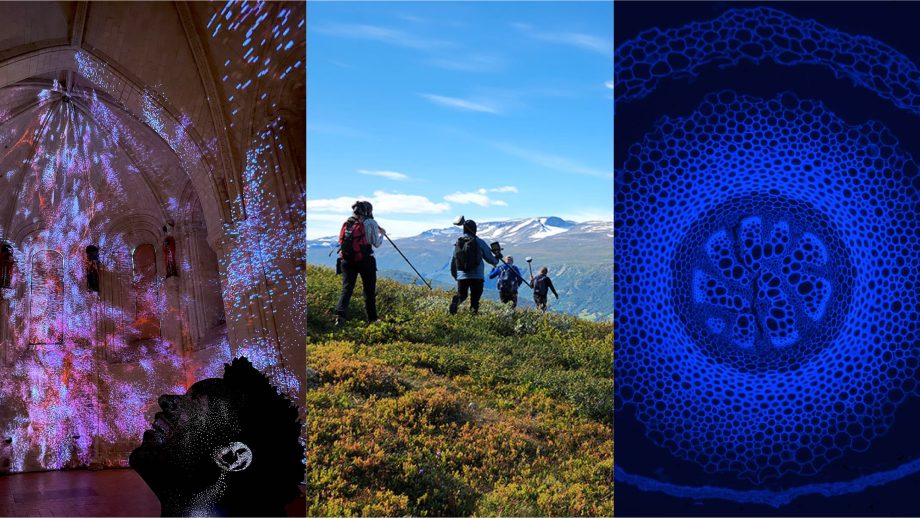The University of Winnipeg’s Dr. Jaime Cidro, (Associate Professor, Anthropology) has recently received two Canadian Institutes of Health Research (CIHR) grants totaling over $835,000 combined. Her project grant, worth $688,500, is the largest CIHR grant ever received by UWinnipeg.
The new project is a collaborative partnership between Wiijii’idiwag Ikwewag (Manitoba Indigenous Doula Initiative), Nanaandawewigamig (First Nations Health and Social Secretariat of Manitoba), and University of Manitoba researchers Drs. Maureen Heaman and Josee Lavoie. Both grants are funding new collaborative research studies, headed by Dr. Cidro and the Research Team at Nanaandawewigamig, examining how Indigenous doulas can support First Nations women who are forced travel for birth in Manitoba.
When a woman from a First Nation such as Cross Lake is going to have a baby, she boards a bus often alone, and makes a journey to Winnipeg or Thompson. She leaves behind her family supports and may be away from her community, living in a boarding home in unfamiliar surroundings, for up to four weeks. This journey away from home to deliver is true for most Manitoba First Nations women from northern rural and remote communities. Being alone and unsupported creates unnecessary stress. It can create negative health consequences for both mom and baby such as anxiety, pre-term birth, low and high birth weights, and even infant death.
Wanda Phillips-Beck, the Primary Health Care Nurse Research Manager of Nanaandawewigamig describes this project as an innovative example of how First Nations solutions are being supported through research collaborations between University and community. “In this age of Truth and Reconciliation, University-First Nations need to form collaborations for meaningful research, rebalancing the power dynamics and raising the profile of culturally-rooted services and supports. Our Traditional Doulas project is a partnership which forms new relationships for a shared understanding of the historical and ongoing challenges that First Nations people face, while restoring First Nations ways that support cultural reclamation.
“Doulas can play a critically important role during pregnancy and labour and research shows us this support for a women’s pregnancy and respectful incorporation of cultural practices are essential to establishing and revitalizing the strong cultural connection for First Nations children and families,” says Dr. Cidro. “Our research hopes to demonstrate that there are marked improvements to the psychological, social and cultural experiences of women who must travel for birth with the support of a doula and we are excited that this team came together to undertake this pilot project.”
This project will deliver culturally-based doula training in Cross Lake and two other First Nations, empowering women in the community to become full spectrum doulas. Pregnant women will receive the care of her community doula up until she is evacuated to Winnipeg or Thompson to give birth. At that time she will be connected with an Indigenous Doula who will provide support while she’s in the city and during the birth. After the client gives birth, she will then return home and be re-connected with her community doula.
“Indigenous doulas will empower and support women and families by providing physical, emotional, and spiritual support; and teaching culturally-rooted approaches to healthy pregnancies, healthy sexuality, childbirth, breastfeeding and parenting,” says Melissa Brown, Indigenous Midwife, Vice-Chair, Wiijii’idiwag Ikwewag. “Our Grandmothers have taught us that the soul of sovereignty lies in birthing. Restoring the sacred bond within families begins in the womb”.
The importance of culturally based knowledge and birthing is something that the community of Cross Lake has been working towards for a long time. “The return of birthing practices, nurturing the supports that will surround our young mothers and their children at home and in Winnipeg, has been a dream and a long struggle. This partnership will strengthen our connection to our ancestral knowledge as we bring healthy children into the world. We want to share what we will learn so this will benefit Indigenous women everywhere,” says Cathy Merrick, the Chief of Cross Lake.
“This research reinforces the importance of working with community members to not only understand complex health interventions but to learn how those interventions can be supported and strengthened. Dr. Cidro and her team will ensure that the health circumstances of women who journey long distances is better understood,” said Dr. Jino Distasio, Vice-President, Research and Innovation. “UWinnipeg is excited to see Dr. Cidro leading this project that will not only contribute to our knowledge but also provide opportunities for additional training and skills development in the communities she is working with that is culturally and community grounded.”
This research program also includes funding from the Queen Elizabeth Scholars – Advanced Scholars program to support an international research exchange with Mexico for Dr. Cidro and one international post-doctoral fellow.
– 30 –
Related research by Dr. Jamie Cidro
MEDIA CONTACT
Diane Poulin, Senior Communications Specialist, The University of Winnipeg
P: 204.988.7135, E: d.poulin@uwinnipeg.ca





